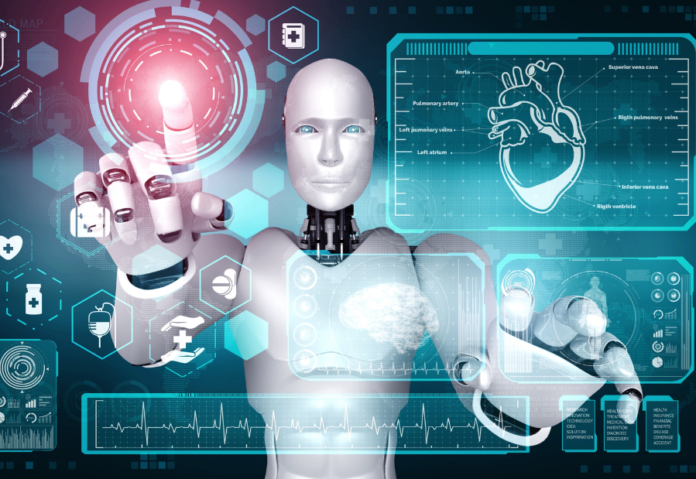In the field of gastroenterology, artificial intelligence has helped in the detection of polyps during colonoscopy and the detection of cancer in the GI tract
AIIMS Delhi has been designated by the Centre as the centre of excellence for Artificial Intelligence (AI) in healthcare, Union health minister Mansukh Mandaviya told the Lok Sabha recently in response to a question.
The institute, Mandaviya said, will explore the utilisation of AI in health schemes facilitating policy decisions. “AI tools can support monitoring of physical and financial aspects of programmes including fraud detection, effective disease management, identifying early warning signals as part of surveillance, development of clinical decision support system (CDSS) supporting practitioners in providing quality care, etc,” he added.
To detect suspicious transactions/potential frauds in ABPM – JAY, the National Health Authority, which implements Ayushman Bharat Pradhan Mantri – Jan Arogya Yojna (ABPM – JAY), has been using AI technologies.
One of the challenges faced in the healthcare sector in the country is shortage of doctors, especially in rural areas. There is one doctor per 1,511 population against the WHO norm of 1:1,000.
Dr Prateek Sharma, a renowned gastroenterologist, who was the first chair of the US task force on AI, said that artificial intelligence has shown benefits in a whole range of specialties. “In primary care, AI studies have been conducted to help monitor patients’ blood pressure and glucose levels suggesting early changes in medications, including blood pressure medications and insulin doses. In the field of gastroenterology, artificial intelligence has helped in the detection of polyps during colonoscopy and the detection of cancer in the GI tract,” he said.
He further explained, “AI predicts the outcome of a diagnostic or prognostic process by using its experience that is based on data of previous patients that were used to train the AI system. It may be considered as a super-calculator that reduces error rate.”
Also read: Is serverless architecture a need for organisations in 2023?
Do Follow: CIO News LinkedIn Account | CIO News Facebook | CIO News Youtube | CIO News Twitter
About us:
CIO News, a proprietary of Mercadeo, produces award-winning content and resources for IT leaders across any industry through print articles and recorded video interviews on topics in the technology sector such as Digital Transformation, Artificial Intelligence (AI), Machine Learning (ML), Cloud, Robotics, Cyber-security, Data, Analytics, SOC, SASE, among other technology topics






